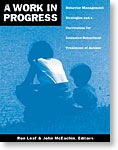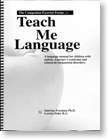Squeezing Out Efficiency from Autism Treatment Dollars
08/09/11 18:23
Whether funded by an insurance company or government funded, Individualized Funding (where the money is given directly to the disabled person to choose treatment professionals) is the “holy grail” for parents of children with autism. The reason for this is simple: competition.
With the Individualized funding model, the disabled person and/or family become the consumer and are in charge of how money is to be spent. The service providers must then compete. The result is that money stretches farther since there is no bureaucratic “handling cost.” In addition, Individualized Funding (IF) creates a higher quality of services. Unfortunately, government bureaucracies with IF systems often dislike the lack of power they have over parents of children with autism; they meddle and create regulatory barriers that interfere with the free market and, consequently, parents of children with autism are left to choose between mediocre, poor and horrendous service providers. Even superior services end up sliding towards mediocrity because the bureaucracy chases away talent by a) limiting activities of the professionals, b) over-regulating the activities that can be funded, c) paying professionals late or not at all, and d) burying service providers with paperwork. The talented providers are the first to opt out and, subsequently, parents are left with the less capable. Over time, treatment becomes substandard baby-sitting; however, due to the official stamp of government, it continues to garner legitimacy and some parents unfortunately relegate their children to these incompetent government programs.
Governmental systems need oversight since they can be corrupted over time; therefore, in order to protect the rights of the disabled person, the less power that accrues to these systems, the better. By decentralizing money and authority to the disabled person, or in the case of autism, the person’s family, the disabled person is protected. I cannot overstate the importance of the notion that the locus of control must always be in the hands of the consumer, not the provider.
With the now common and serious condition of autism, we can no longer afford organizational inefficiencies that have traditionally plagued this group of children and their families both in terms of cost and the harm of lost treatment opportunities. Therefore, family choice is essential since it has been shown to create efficiencies and improved quality in autism treatment.
With the Individualized funding model, the disabled person and/or family become the consumer and are in charge of how money is to be spent. The service providers must then compete. The result is that money stretches farther since there is no bureaucratic “handling cost.” In addition, Individualized Funding (IF) creates a higher quality of services. Unfortunately, government bureaucracies with IF systems often dislike the lack of power they have over parents of children with autism; they meddle and create regulatory barriers that interfere with the free market and, consequently, parents of children with autism are left to choose between mediocre, poor and horrendous service providers. Even superior services end up sliding towards mediocrity because the bureaucracy chases away talent by a) limiting activities of the professionals, b) over-regulating the activities that can be funded, c) paying professionals late or not at all, and d) burying service providers with paperwork. The talented providers are the first to opt out and, subsequently, parents are left with the less capable. Over time, treatment becomes substandard baby-sitting; however, due to the official stamp of government, it continues to garner legitimacy and some parents unfortunately relegate their children to these incompetent government programs.
Governmental systems need oversight since they can be corrupted over time; therefore, in order to protect the rights of the disabled person, the less power that accrues to these systems, the better. By decentralizing money and authority to the disabled person, or in the case of autism, the person’s family, the disabled person is protected. I cannot overstate the importance of the notion that the locus of control must always be in the hands of the consumer, not the provider.
With the now common and serious condition of autism, we can no longer afford organizational inefficiencies that have traditionally plagued this group of children and their families both in terms of cost and the harm of lost treatment opportunities. Therefore, family choice is essential since it has been shown to create efficiencies and improved quality in autism treatment.












